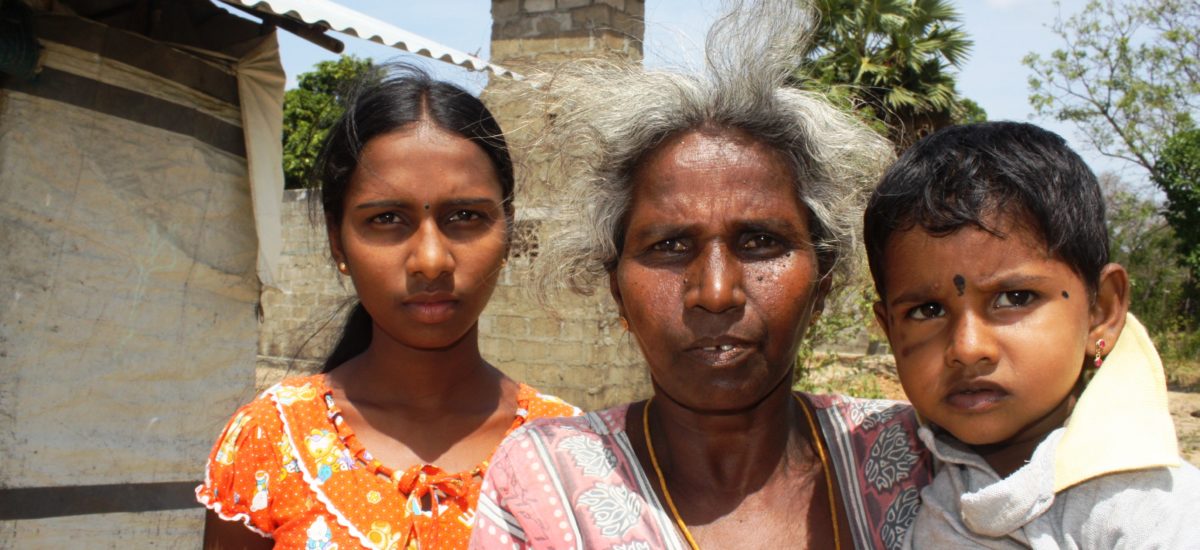[Featured image courtesy IRIN News.
Editor’s note: This is the second of a series of poems submitted by the author as entry criteria for the Write to Reconcile Programme, which brings together emerging writers with the goal of writing fiction, memoirs or poetry on the issues of conflict, peace, reconciliation, memory and trauma in Sri Lanka, post-war.]
She marched through the streets in ’09,
For a country thousands of miles away,
For the people she had never met.
She marched, and she stood side by side
Thousands.
Thousands, who, like her, did not know
The country that they marched for.
Thousands, like her, who did not know
The people they cried for. And yet,
They marched.
Because, strangers though they were,
They were our strangers.
They were her brothers and sisters she does not know,
They were one community.
It wasn’t enough.
Marching through London while people
fled to refugee camps worldwide,
What she was doing was not enough.
She knew she needed to help.
She could understand Tamil; struggled to speak,
Her skills were so limited, but her compassion limitless,
She left.
I lost count of how many bodies
I passed in that refugee camp.
Bodies without life, yet bodies with so much soul,
Bodies that were lost, and those upon whom
the journey had taken its toll.
The screams in the night
I will never forget,
The blood on their clothes
stained my mind as I tried to understand
How did we get here?
I saw her from afar.
I was alone, no family, no friends.
The furrows on my head mapped out years of this war,
The loss behind my eyes captured the scars of so many.
I come from Tricomalee,
My son was killed in the strike that I fled,
My wife, I lost, and cannot find.
My home of 60 years was destroyed in mere seconds.
I am alone.
She doesn’t know how to express that her tongue
is not trained to move in a way I can understand,
but her ears knew how to process my words, so she listened.
I spoke.
I spoke, as though I had waited for so long to be heard,
She listened as though she was fleeing carnage with me.
She had never visited the places I spoke of,
the quiver in her lips as I spoke showed me
she longed for the communities I described.
A tear rolled down her face as I talked of
the mango trees in my garden, and I saw
a loss behind her eyes:
a cousin to the loss entangled behind mine.
Through her broken Tamil, she stammered.
She knew not what to say.
My grief had transferred to her heart,
My pain, dripped, into her tears.
She reached into her bag and pulled out a box.
Her grandmother was from my village,
and for years, this girl held onto this,
which belonged to her Ammamma as a little girl.
She held my hand as she struggled to explain
how much this gift meant to her,
and how much she wanted me to have it.
When she longs for the country thousands of miles away,
For the people she has never met
She holds this and remembers:
She is not alone.
She opened the box and presented to me:
A broken toy.
A toy, wrapped in the scraps of a sari,
A toy that does not work, but it carried with it
The love of a family.
The strength of our people.
The connection to community.
The girl left a few days after we met.
She was a mere visitor to my life.
Several years have passed.
I lost my family, I lost my home
I don’t fit in,
and I spent years searching for a mango
that tastes like home.
But, when sorrow sets in and
I reflect on all that was left behind,
I look at this toy and I remember:
My loss is not alone.

